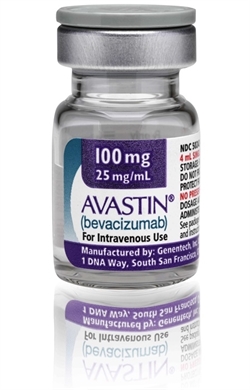13.11.14
Price restrictions to be introduced for Cancer Drugs Fund
Price restrictions are to be introduced to the Cancer Drugs Fund for the first time, NHS England has announced.
The CDF was established in 2010 to give patients access to life-saving drugs that NICE has assessed as not offering enough benefit to justify their price. However the £200m-a-year Fund has been heavily overspent, going £30m over-budget in 2013.
Since it was introduced, more than 55,000 patients have accessed treatment through the CDF – about 2,000 every month.
The budget is to be expanded to £280m but further changes are being introduced to keep it sustainable – including an assessment of 42 drugs currently available through the CDF to ensure they deliver a high enough benefit to justify the cost.
Drugs to be reviewed include Kadcyla, which extends life by an average of six months and costs £90,000 a course, and Avastin, for breast and bowel cancer. Ten new drugs will also be evaluated for their inclusion into the Fund.
NHS England have stressed that no patient will be taken off their current medication as part of the policy shift.
Earlier this year the chairman of the Cancer Drugs Fund, Professor Peter Clark wrote: “While the Cancer Drugs Fund currently funds drugs of good benefit to patients, it also includes a minority drugs with much less clinical value.
“These offer at best a modest or no impact on survival, and uncertainty as to whether quality of life is improved or not.”
During a consultation on the future of the fund, he added: “Drugs which are excessively priced would be potentially removed from the Cancer Drugs Fund unless the pharmaceutical company makes an appropriate adjustment.”
 The charity Breakthrough Breast Cancer has expressed “deep concern” that several drugs that have proven very effective are included on the list to be evaluated due to their high price.
The charity Breakthrough Breast Cancer has expressed “deep concern” that several drugs that have proven very effective are included on the list to be evaluated due to their high price.
“The Fund is the only way women in England can routinely access these drugs that can offer them months, or even years, of additional good quality life,” said Caitlin Palframan, senior policy manager at the charity.
“The Cancer Drugs Fund was only ever intended to be a temporary solution, acting as a safety net for patients, but we are now facing a situation in which it may fail to perform that function for some people and more and more life-extending drugs could be snatched away from those that need them.
“That’s why we are calling upon all political parties to commit within their manifestos to finding a long-term, UK wide solution to the ongoing problem of access to life-extending drugs by the end of the next parliament, working with the pharmaceutical industry and key stakeholders to develop and embed a new system of drug pricing and evaluation.”
Owen Sharp, chief executive of Prostate Cancer UK said that the current system gives pharmaceutical companies “little incentive” to lower prices as they know any drugs refused by NICE can be sold via the Cancer Drugs Fund.
He added: “Whilst we welcome the clarity provided by these proposed reforms, the huge deficit that has brought the Cancer Drugs Fund to the brink is the result of a failed drug appraisal system that continues to deny thousands of cancer patients access to effective drugs that they clearly need.
"A long-term solution is urgently needed that delivers an overhaul of the way new cancer drugs are appraised. To work there must be greater collaboration with the pharmaceutical industry to develop measures that combat the over-pricing of new cancer drugs and make them affordable for the NHS. We will be holding NHS England, NICE and the government to their commitment to work closely with patients and clinicians to make this happen.”
Professor Peter Johnson, Cancer Research UK’s chief clinician, said: “The Cancer Drugs Fund was introduced as a short term measure to help patients with difficult-to-treat cancers obtain the drugs which their doctors felt would be helpful. It has been under increasing financial pressure as the number of possible treatments has increased and we need to get back to a process which is responsive to individual patients’ needs. The current system has become inflexible and simply relies on more and more cash to shore up a process which isn’t sustainable.
"In the long-run we still need a robust way of assessing new treatments to determine what the NHS can fund, so that cancer patients get the best, evidence-based treatments for their condition. But it is absolutely vital that NHS England is clear which drugs might come off the list, allows sufficient time for consultation, and properly communicates these decisions to patients."
A national Cancer Drugs Fund panel, to include patient representatives as well as doctors and pharmacists, will meet in mid-December, said NHS England, to decide which drugs should stay and which be dropped from the list. Their decisions will be published in the new year.
(Image: Avastin is one of the drugs to be reviewed under the new policy. c. AP Photo/Genentech Inc.)
Tell us what you think – have your say below or email [email protected]